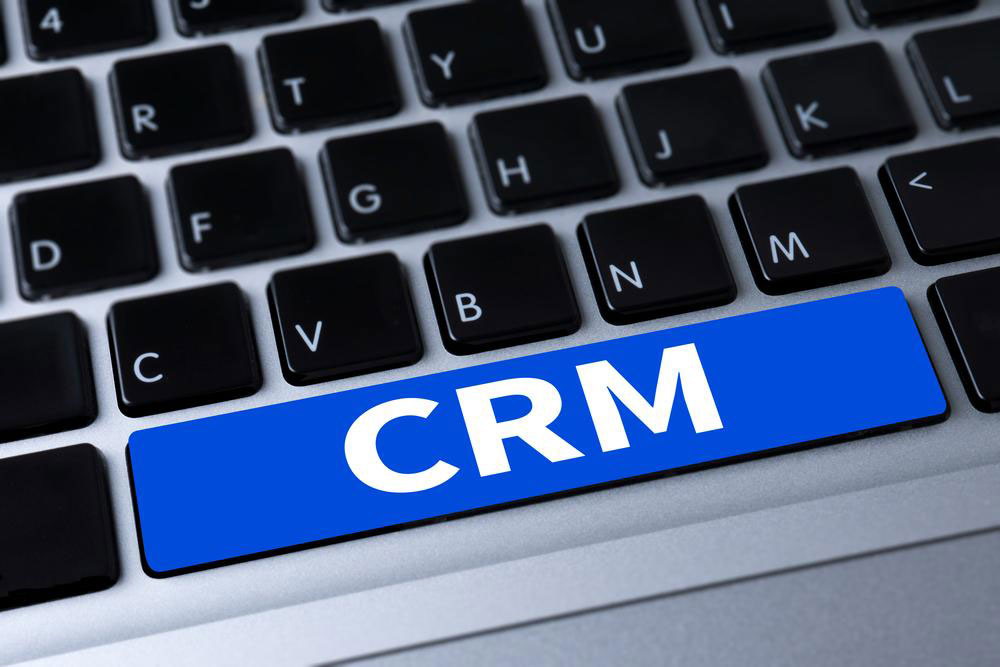Comprehensive Guide to Customer Relationship Management (CRM) Tools: Benefits, Limitations, and Top Solutions
This comprehensive guide explores the advantages and challenges of Customer Relationship Management (CRM) systems. It highlights key benefits such as improved data access, communication, automation, collaboration, and analytics. The article also reviews potential limitations like security risks and employee resistance. Additionally, it provides insights into popular CRM software options—including HubSpot, Oorwin, and Pipedrive—helping businesses select the right solution to boost customer service and operational efficiency. An essential read for organizations aiming to optimize customer engagement.

Analyzing the Pros and Cons of Customer Relationship Management (CRM) Solutions for Modern Businesses
In today’s competitive marketplace, understanding and nurturing customer relationships are more vital than ever. Customer Relationship Management (CRM) systems have become a cornerstone of successful business strategies, enabling organizations to build long-term connections with clients, improve customer satisfaction, and drive sales growth. This comprehensive guide delves into the multifaceted world of CRM tools, exploring their numerous benefits, facing their inherent challenges, and providing insights into the most popular CRM solutions available today. By understanding both sides, businesses can make informed decisions to enhance their customer engagement strategies effectively.
The Significance of CRM in Modern Business Practices
Customer relationships are foundational to sustained business success. A well-executed CRM strategy ensures that companies can gather detailed insights into customer behaviors, preferences, and feedback, allowing tailored service delivery and personalized marketing efforts. CRM systems act as centralized hubs that facilitate the seamless flow of information across departments such as sales, marketing, customer support, and management. This integration promotes efficiency, reduces redundancy, and fosters a unified approach to customer engagement.
In the digital age, customers expect quick responses, personalized experiences, and consistent service across all channels. CRM software helps meet these expectations by automating routine tasks, enabling swift communication, and providing a 360-degree view of each customer. As a result, businesses can improve loyalty, increase retention rates, and ultimately boost profitability. An effective CRM ecosystem goes beyond simple contact management; it encompasses analytics, automation, and collaborative features that empower teams to deliver exceptional service and adapt dynamically to changing market demands.
Major Benefits of Implementing CRM Software
Adopting CRM technology offers multiple advantages that can transform business operations. Here are some of the most impactful benefits:
Enhanced Data Collection and Accessibility
One of CRM’s primary strengths lies in its ability to store enormous volumes of customer data securely. Unlike traditional manual files, cloud-based CRM platforms provide remote access, ensuring that authorized personnel can retrieve relevant information anytime, anywhere. This immediate accessibility enables teams to make better-informed decisions, respond swiftly to inquiries, and understand customer needs thoroughly. Additionally, detailed records of past interactions, preferences, and purchase history facilitate personalized service delivery, enhancing overall customer satisfaction.
Streamlined Communication Processes
Effective communication is the backbone of strong customer relationships. CRM systems centralize communication channels, making it easier for sales and support teams to access specific customer data and respond appropriately. Standardized scripts, templates, and automated responses ensure that every interaction remains professional and consistent. Whether dealing with emails, calls, or chat inquiries, CRM tools help teams provide timely and relevant responses, which significantly improves the customer experience.
Enhanced Customer Service and Satisfaction
CRM systems allow support teams to track ongoing issues and review past cases, fostering quicker resolutions and proactive service. For loyal customers, this means resolving recurring concerns swiftly and demonstrating attentiveness, which cultivates trust and loyalty. Additionally, CRM analytics help identify pain points and opportunities for service improvement, leading to higher customer satisfaction scores.
Automation of Routine Tasks and Processes
Automation is a game-changer of modern CRM solutions. Tasks such as data entry, lead capture, follow-up reminders, and report generation can be automated entirely. This automation reduces manual errors, accelerates workflow, and frees employees to focus on strategic activities like sales closing and relationship building. Automating post-purchase communications ensures ongoing engagement without additional manual effort, thereby improving efficiency and consistency.
Fostering Collaboration and Improving Team Productivity
Modern CRM platforms facilitate seamless collaboration across departments. Shared access to customer data ensures that all teams are working with the same information, reducing miscommunications and delays. Features such as task management, notification alerts, and integrated communication channels enhance teamwork, leading to increased productivity and a more cohesive customer experience.
Informed Decision-Making via Data Analytics
CRM systems generate valuable insights through data analytics and reporting tools. Businesses can analyze customer behaviors, forecast sales trends, and evaluate marketing campaign effectiveness. Strategic decisions—such as product adjustments, targeted marketing initiatives, or resource allocation—become more data-driven, increasing the likelihood of success. Proper data management also ensures compliance with data privacy regulations, protecting both customer information and the company's reputation.
Limitations and Challenges Associated with CRM Software
Despite the numerous advantages, CRM implementation can pose certain challenges that businesses must carefully navigate.
Potential Reduction in Personal Human Interaction
While automation enhances efficiency, it can sometimes lead to perceptions of impersonal service. Customers with complex or long-standing issues may prefer human interaction, and overly automated responses can frustrate users if not balanced correctly. Striking the right balance between automation and personal touch remains a critical aspect of effective CRM use.
Security and Data Privacy Risks
Centralized data storage in CRM platforms presents security concerns. Data breaches, hacking, or technical failures can compromise sensitive customer and company information. Implementing robust security features, encryption, regular backups, and strict access controls are essential to mitigate these risks. Additionally, compliance with data privacy laws such as GDPR or CCPA should be prioritized to avoid legal repercussions.
Employee Resistance and Adaptability Issues
Transitioning to new CRM systems may encounter resistance from staff accustomed to traditional workflows. Lack of training or perceived complexity can hinder adoption rates. Providing comprehensive training, change management strategies, and ongoing support help ensure successful integration and maximize the system’s benefits.
Popular CRM Software Options for Businesses
Choosing the right CRM platform depends on company's size, industry, budget, and specific needs. Here are some of the most widely used CRM solutions:
HubSpot CRM
Known for its user-friendly interface and affordability, HubSpot CRM offers a free tier suitable for startups and small businesses. It integrates smoothly with other marketing and sales tools, promoting quick setup and minimal disruption to existing workflows.
Oorwin
Based in San Francisco, Oorwin combines CRM with HR management and applicant tracking features, making it ideal for staffing, consulting, and recruitment firms. Its simple interface supports remote team collaboration and streamlines complex workflows.
Freshsales by Freshworks
This solution focuses on the needs of sales teams, managing thousands of leads efficiently. With features like real-time lead scoring, automated workflows, and insightful dashboards, Freshsales accelerates sales processes and enhances team productivity. Free trials allow businesses to test functionalities before committing.
Vtiger CRM
Widely adopted by over 300,000 companies across multiple industries, Vtiger offers extensive automation for sales, marketing, and support functions. Its capabilities include lead management, revenue forecasting, and campaign automation, making it a comprehensive choice for growth-oriented organizations.
Pipedrive
Designed with simplicity in mind, Pipedrive excels at managing sales pipelines and tracking progress through various negotiation stages. Its intuitive visual interface makes it easy for teams to build, monitor, and optimize customer relationships for maximum retention and revenue growth.
In summary, CRM systems present invaluable tools that can significantly elevate business operations, customer satisfaction, and competitive advantage. Proper planning, staff training, and security measures are vital to overcoming potential pitfalls and fully harnessing the power of CRM technology. Adopting the right solution tailored to your organization’s needs will pave the way for a more efficient, customer-centric future.





